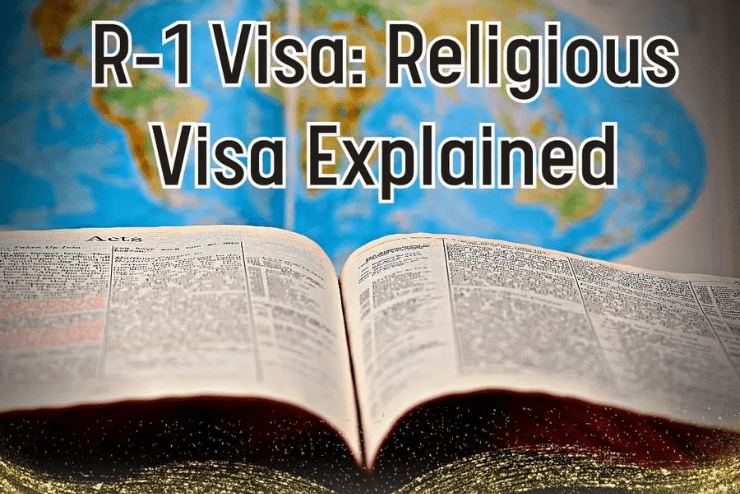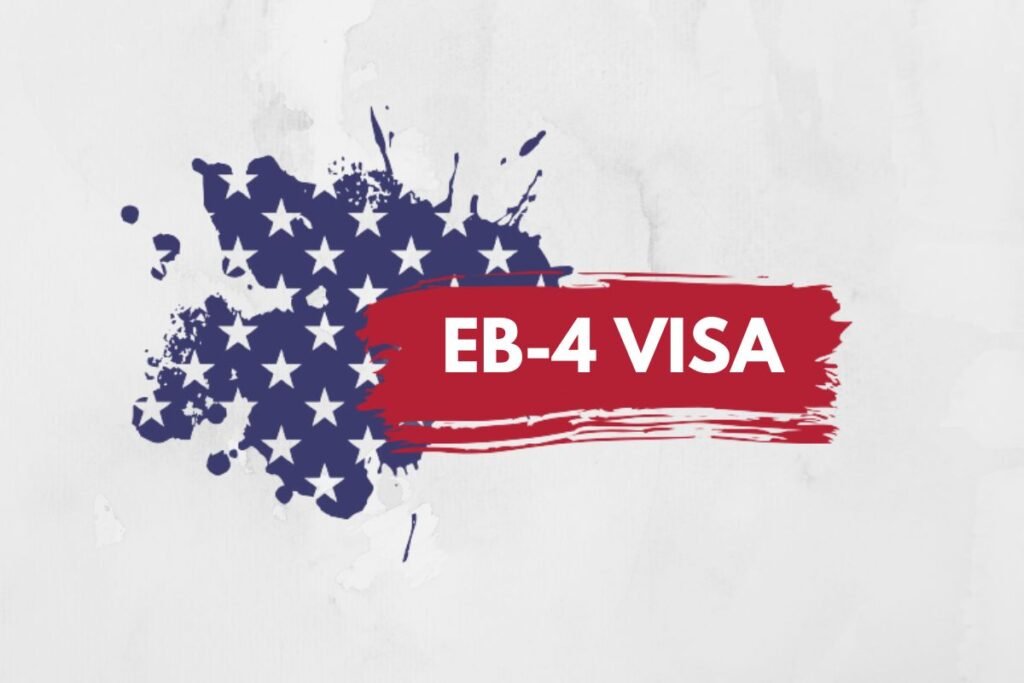- June 23, 2025
- Comments: (0)
For centuries, the United States has been a beacon of religious freedom, attracting individuals from across the globe to practice and share their faith. This tradition continues today, with specific visa pathways designed to welcome religious workers and ministers. If you are a religious professional seeking to contribute your skills and devotion to a U.S.-based faith community, understanding your visa options is the first step toward realizing that calling. This guide, brought to you by SwiftPass Global Immigration, will explore the primary temporary and permanent visa categories available to religious workers.
The R-1 Visa: A Temporary Pathway For Religious Work

The most common non-immigrant visa for religious workers is the R-1 visa. This visa allows individuals to come to the U.S. temporarily to work as a minister or in a religious vocation or occupation.
Who Qualifies For An R-1 Visa?
To be eligible for an R-1 visa, both the religious worker and the prospective U.S. employer must meet specific criteria set by U.S. Citizenship and Immigration Services (USCIS).
For the Religious Worker:
- You must have been a member of a religious denomination that has a bona fide non-profit religious organization in the United States for at least two years immediately before filing the petition.
- You must be coming to the U.S. to work at least part-time (an average of at least 20 hours per week).
- The work must be as a minister or in a religious vocation or occupation.
For the U.S. Employer:
- The petitioning organization must be a non-profit religious organization in the U.S. or be affiliated with a religious denomination in the United States.
- The organization must have tax-exempt status.
The Application Process
The process begins with the U.S. employer filing Form I-129, Petition for a Nonimmigrant Worker, with USCIS. Once the petition is approved, the religious worker can apply for the R-1 visa at a U.S. embassy or consulate in their home country. This typically involves an interview with a consular officer.
Duration Of Stay
An R-1 visa is initially granted for up to 30 months. It can be extended for an additional 30 months, for a maximum total stay of five years (60 months). After reaching the five-year limit, the individual must reside and be physically present outside the U.S. for at least one year before being eligible for a new R-1 visa.
Permanent Residency: The EB-4 Visa For Special Immigrant Religious Workers

For those seeking to serve in a U.S. religious organization permanently, the Employment-Based Fourth Preference (EB-4) immigrant visa is the primary option. This visa category allows ministers and other religious workers to obtain a Green Card and become lawful permanent residents.
Who Qualifies For An EB-4 Visa?
The eligibility requirements for the EB-4 visa are more stringent than for the R-1 visa.
- You must have been a member of a religious denomination with a bona fide non-profit religious organization in the U.S. for at least two years before filing the petition.
- You must have been continuously working in a qualifying religious vocation or occupation for the two years immediately preceding the filing of the petition. This work could have been performed in the U.S. or abroad.
- You must be coming to the U.S. to work in a full-time, compensated position for a bona fide non-profit religious organization in the U.S.
Key Distinctions For Non-Minister Religious Workers
A significant aspect of the EB-4 program is the distinction between “ministers” and “non-minister” religious workers. While the provision for ministers is a permanent part of U.S. immigration law, the program for non-minister special immigrant religious workers has historically been subject to a “sunset date” and requires periodic reauthorization by Congress. As of the latest updates, this program has been extended, but it is crucial to verify the current status when considering this option.
The Application Process
The first step for an EB-4 visa is for the U.S. employer to file Form I-360, Petition for Amerasian, Widow(er), or Special Immigrant. Once the I-360 petition is approved, the religious worker can either apply for an immigrant visa at a U.S. consulate abroad or, if already in the U.S. in a valid non-immigrant status, may be eligible to file Form I-485, Application to Register Permanent Residence or Adjust Status, to obtain a Green Card.
Navigating Your Path with Confidence
The journey to obtaining a religious worker visa can be complex, requiring careful documentation and adherence to specific legal standards. Whether you are seeking a temporary R-1 visa or a permanent EB-4 Green Card, understanding the nuances of U.S. immigration law is essential.
SwiftPass Global Immigration is here to provide the expert guidance and support you need to navigate this process successfully. SwiftPass Global Immigration plays a vital role in guiding religious workers, ministers, missionaries, and faith-based organizations through the complex process of obtaining U.S. visas such as the R-1 (Religious Worker Visa) and the Special Immigrant Religious Worker (SD category) green card.
With deep expertise in U.S. immigration law and a client-centered approach, SwiftPass assists churches, temples, and religious nonprofits in securing sponsorship approvals, navigating USCIS documentation, and preparing for consular interviews.
Whether you are a pastor seeking temporary entry or a missionary pursuing permanent residency, SwiftPass ensures every application is handled with precision, care, and faith-aligned integrity.